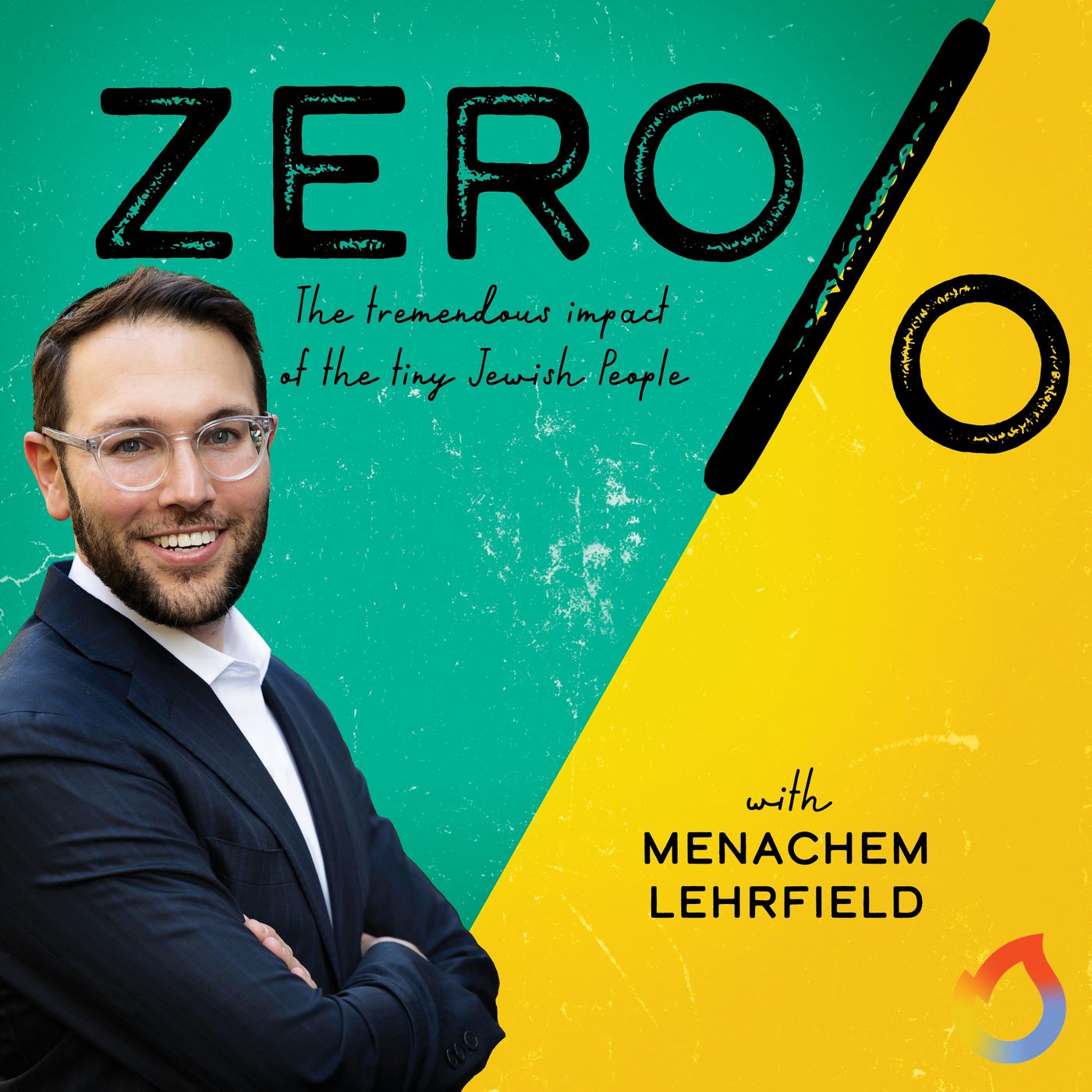12- The Tortoise or the Hare
Description
In this episode we continue our discussion about effort.
Hello, my friends, I'm Menachem lehrfield and this is 0%. We've been talking about the importance of effort and how from God's eyes all that truly matters is how much we've moved our needle. It doesn't matter necessarily how far we get, what matters is how much do we move from where we started to where we are right now. You may look at two people, one who does so many good things and is so charitable and philanthropic and kind and giving and another that we would look at and say, that's a bad person. But without knowing where somebody started and where they are right now, there's no way to truly know which one is a better person. The person who moved their needle the furthest, the person that grew the most in their lifetime is the one who's a better person. Now, this is a hard concept for us to wrap our head around because we don't really work in an effort based system. We live in a very result based system.
If I hire you to paint my house and I come back at the end of the day and the house isn't painted, I'm not going to pay you a dime because you didn't do your job. I don't care how much you tried. I don't care how much you wanted to paint the house. If you didn't do it, you don't get paid. We live in a very result based system. All we really care about, all we focus on is the result, but from God's perspective, he doesn't need the result. The outcome, as we said is always outside of our control. And so the result is never the focus. The focus is always on the effort. That is what I bring to the table. Jewish wisdom teaches us “L'fum tzara agra" based on the effort is the reward.
With this concept we can understand an interesting episode. We find Abraham has a nephew named Lot, who he raises as his own son and takes care of him and provides for him and eventually for whatever reason they part ways and Lot goes off to live in the city of Sodom and eventually the city is so corrupt that God decides he's going to destroy the whole city and Abraham pleads on behalf of the city. He goes back and forth. It's what Alan [inaudible] calls the first example of a Jewish lawyer and he actually says that perhaps that's why so many Jews have gone into law because it's kind of part of our DNA going all the way back to Abraham. But in any event, Abraham fights on behalf of the city of Sodom unsuccessfully but he does get permission to save Lot and the angels go to the city. They save Lot's life and what's interesting is the reason that's given for why Lot is saved.
Rashi who's our classic commentator and I call him our classic commentator because he wrote on almost everything. Rashi who is Shlomo Yitzhaki is a medieval rabbi born in the 1040s I believe, wrote commentary on the books of the Torah [inaudible] the entire collection of biblical books he wrote on the Talmud. Rashi's job was always to help us understand the words that are in front of us. Rashi's job is to provide context and understanding in the words, as we see them in these classic sources. So when the Torah describes Lot being saved from the city of Sodom's destruction, Rashi explains why he was saved and Rashi explains the reason why Lot is from Sodom and Gomorrah is because of his behavior in a previous episode.
There was a famine in the land and Abraham and Sarah and Lot were escaping to Egypt to get some food. Now in ancient Egypt, they had some pretty messed up priorities. So they had no problem killing somebody, but for whatever reason, they were very strict in adultery. They would never ever take another person's wife. But if they really wanted to, they had a great solution. They would make the woman into a widow that do it yourself way, which reminds me. I had a teacher who was once a chaplain in a jail. He was meeting with the prisoners and he met with one prisoner and he said to him, so what are you in for? And this big muscular man leans over the desk and says, I became a...
More Episodes
Published 04/21/24
Published 04/19/24
Published 04/19/24


